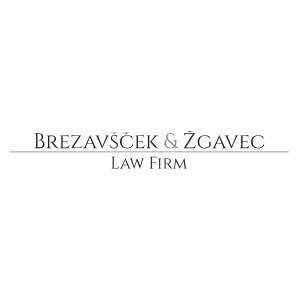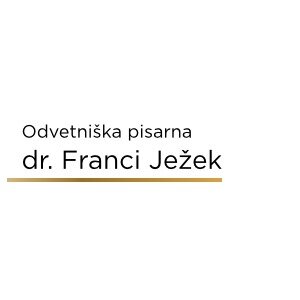Best International Lawyers in Slovenia
Share your needs with us, get contacted by law firms.
Free. Takes 2 min.
Or refine your search by selecting a city:
List of the best lawyers in Slovenia
About International Law in Slovenia
International law in Slovenia encompasses a range of legal principles that govern the interactions between Slovenia and other nations. It involves treaties, international agreements, and Slovenia's obligations under international organizations, such as the United Nations and the European Union. The scope of international law includes human rights, environmental regulations, trade, and diplomatic relations within the Slovenian context. Slovenia, being a member of the EU, abides by many EU regulations and directives, which also influence its international legal obligations.
Why You May Need a Lawyer
Individuals may seek legal advice in international law for a variety of reasons. Common situations include cross-border business transactions, international trade disputes, immigration issues, and matters involving human rights or international treaties. Legal help may also be required for compliance with EU regulations or resolving conflicts that involve foreign parties. Furthermore, Slovenian businesses expanding internationally or foreign companies entering the Slovenian market often need expert legal guidance to navigate the complex landscape of international law.
Local Laws Overview
Slovenia's legal framework is based on civil law traditions, and its international legal obligations are typically conducted through the ratification of treaties and cooperation with international organizations. Key aspects include:
- The Constitution of Slovenia, which incorporates international law as part of its legal system.
- The role of the Ministry of Foreign Affairs in implementing international agreements.
- Compliance with EU law, which has supremacy over conflicting national laws in areas governed by EU competence.
- Engagement with international trade laws, including those within the World Trade Organization.
- International human rights obligations as a signatory to numerous conventions.
Frequently Asked Questions
What is the role of international law in Slovenia's legal system?
International law is an integral component of Slovenia's legal framework and is applied domestically once treaties are ratified by the national parliament.
How does Slovenia handle international trade disputes?
Slovenia resolves international trade disputes through arbitration, litigation, and by adhering to agreements under organizations like the WTO and EU Trade Rules.
Can foreign businesses easily operate in Slovenia?
Yes, Slovenia encourages foreign investment and businesses, but they must comply with local regulations. It's advisable to consult legal experts for navigating tax, labor, and commercial laws.
What immigration legislation affects foreigners in Slovenia?
Slovenia adheres to EU immigration policies, and national laws regulate residence permits, work visas, and nationality applications for non-EU citizens.
How are international human rights treaties implemented?
Slovenia ratifies international treaties through its parliament, and these are then implemented into domestic law, ensuring compliance and protection under national courts.
Is there any legal support for cross-border family law issues?
Yes, Slovenia implements EU regulations and international conventions like the Hague Convention to address cross-border custody and family law matters.
How does Slovenia engage in international environmental agreements?
Slovenia commits to environmental protection through EU directives and international agreements such as the Paris Agreement, implementing regulations to meet climate targets.
What is the process for resolving international contract disputes?
Slovenian law supports arbitration and mediation for resolving international contract disputes, in addition to court litigation if necessary.
How can international treaties affect local legislation?
Once ratified, international treaties have the power to influence or override local laws in Slovenia, aligning it with international obligations.
What is Slovenia's role within the European Union's legal system?
As an EU member, Slovenia is subject to EU laws which prevail over national laws in areas of EU competence, affecting economic policy, competition law, and more.
Additional Resources
For those seeking more information on international law in Slovenia, consider consulting the following:
- The Ministry of Foreign Affairs of the Republic of Slovenia
- The Slovenian Chamber of Commerce and Industry for information on international trade
- The Slovenian Bar Association for finding specialized international law attorneys
- European Union’s Europedia for understanding EU law's impact on Slovenia
- International Court of Justice for global legal proceedings
Next Steps
If you require legal assistance in matters of international law in Slovenia, consider the following steps:
- Clearly identify the specific legal issue or potential dispute.
- Seek referrals or contact the Slovenian Bar Association to find a lawyer experienced in international law.
- Prepare relevant documentation related to your case, such as contracts, correspondences, or legal notices.
- Schedule a consultation to discuss your situation, understand your rights, and explore potential legal strategies.
- Follow the legal advice provided, and ensure ongoing communication with your lawyer throughout the legal process.
Lawzana helps you find the best lawyers and law firms in Slovenia through a curated and pre-screened list of qualified legal professionals. Our platform offers rankings and detailed profiles of attorneys and law firms, allowing you to compare based on practice areas, including International, experience, and client feedback.
Each profile includes a description of the firm's areas of practice, client reviews, team members and partners, year of establishment, spoken languages, office locations, contact information, social media presence, and any published articles or resources. Most firms on our platform speak English and are experienced in both local and international legal matters.
Get a quote from top-rated law firms in Slovenia — quickly, securely, and without unnecessary hassle.
Disclaimer:
The information provided on this page is for general informational purposes only and does not constitute legal advice. While we strive to ensure the accuracy and relevance of the content, legal information may change over time, and interpretations of the law can vary. You should always consult with a qualified legal professional for advice specific to your situation.
We disclaim all liability for actions taken or not taken based on the content of this page. If you believe any information is incorrect or outdated, please contact us, and we will review and update it where appropriate.
Browse international law firms by city in Slovenia
Refine your search by selecting a city.

















